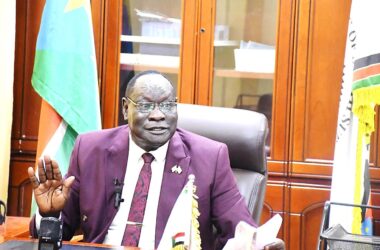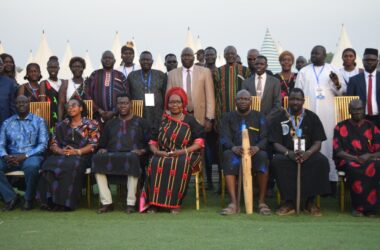
By Alan Clement
More than 50 South Sudanese lawmakers completed trauma counseling training in Juba, aiming to strengthen emotional resilience and improve legislative capacity amid the country’s ongoing peacebuilding efforts.
The training, held from August 26 to 28, was organized by Peace Movement Netherlands Foundation (PAX) under its Empowered Women Influence (EWI) project, with funding from the Government of the Federal Republic of Germany.
The workshop follows a similar session held in May and sought to assess its impact while deepening participants’ emotional resilience an increasingly recognized prerequisite for effective governance in a country grappling with the long-term effects of conflict.
“In South Sudan, the word trauma is becoming more prevalent in every publication and news media presentation,” said Emmanuel Ira, Country Director for PAX South Sudan. “A traumatized mind is a mind that cannot perform. For legislators, healing is essential to crafting policies that move the country toward sustainable peace.”
The training brought together representatives from both national and state-level ministries of Gender, Child and Social Welfare. While the initiative targets 60% female participation, organizers emphasized the importance of male allies in understanding and advancing women’s issues. “Without the involvement of men, the understanding of women’s challenges would be limited,” said Martina Kani, EWI Project Officer.
Rev. Dr. Alice Khakasa Muse, a psychologist and workshop facilitator, urged participants to take ownership of the healing process. “Healing cannot come from outside; it begins with us,” she said, calling on lawmakers to become ambassadors of peace in their communities.
The workshop also served as a platform for reflection on the emotional toll of public service in a post-conflict society. Participants shared personal testimonies of growth and transformation. “We have found healing within this three-day training. When we are healed, someone near us will also be healed,” said Rose Bond Yowasa, a member of the Central Equatoria State Parliament.
Others called for institutional follow-up. Peter Buteli Farajallah from the State Ministry of Gender proposed the formation of a national committee to extend psychosocial support to communities. Anei Deng, representing Northern Bahr El Ghazal, urged fellow lawmakers to disseminate trauma recovery skills at the grassroots level.
In his closing remarks, Lukas Durrnagel, First Secretary at the German Embassy, reiterated Germany’s commitment to supporting inclusive peacebuilding efforts. “Peace is paramount, and all parties have to work to achieve it,” he said, highlighting the need for a pluralistic political space where every parliamentarian can freely exercise their mandate.
While the initiative has been praised for its impact, questions remain about how such trainings will translate into tangible legislative reforms particularly around gender-based violence, mental health policy, and judicial accountability. As South Sudan continues its fragile transition, the emotional readiness of its lawmakers may prove as critical as their political will.



